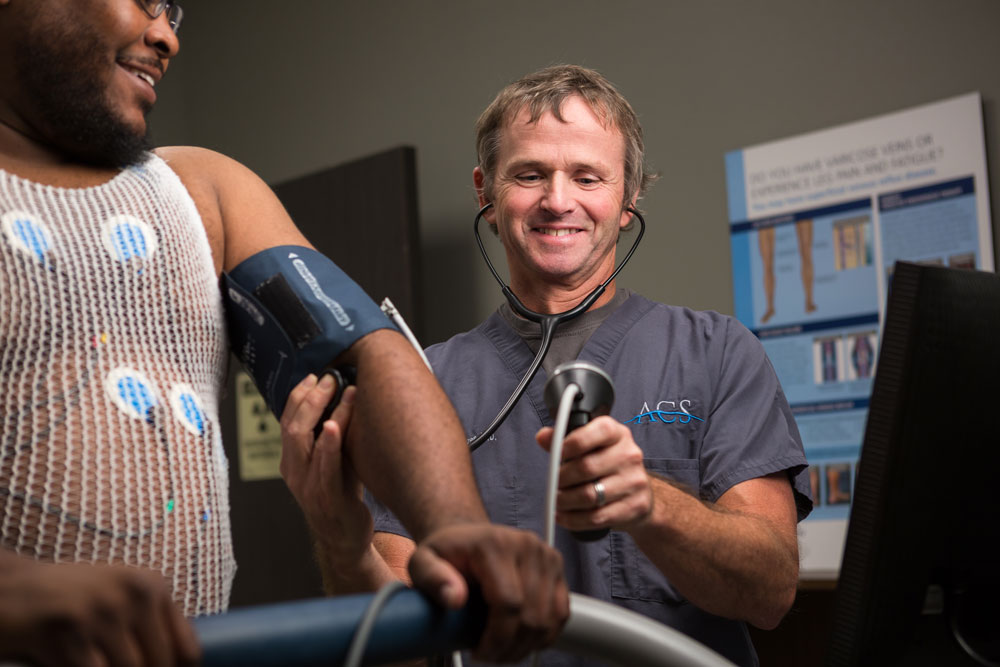A stress test is one of the diagnostic tools that cardiologists can use to assess your heart function. Stress tests reveal how well your heart works under an increased workload to help diagnose heart disease and assess your risk for a heart attack.
Stress tests are a safe way to monitor your heart rate, heart rhythm, blood pressure and breathing while you exercise. This allows your physician to check how your heart functions under various levels of stress.
Stress tests can:
- Determine your risk for heart disease or other cardiac conditions.
- Reveal heart rhythm changes occurring during exercise.
- Identify the cause of heart-related symptoms, such as shortness of breath, chest pain or light-headedness.
- Be used to create a safe exercise plan.
- Check how effective treatment or procedures have been.
Your doctor may recommend a stress test if you have risk factors, symptoms or a history of heart disease, including:
- Having high blood pressure, high cholesterol or diabetes.
- Having a family history of heart disease.
- Being overweight.
- Experiencing chest pains or other symptoms that may be caused by heart disease.
Before The Test
We will provide comprehensive instructions on how to prepare for your stress test, but there are a few key things to remember. You will need to:
- Avoid caffeine for 24 hours prior to the test. This includes all caffeinated drinks and chocolate.
- Have nothing to eat or drink for up to 4 hours before your test.
- Double-check what medications to take prior to your appointment.
During The Test
A technician will monitor your heart function and blood pressure first while you are at rest and then as you exercise on a treadmill. If you are unable to exercise at all, you will be given medication that makes your heart respond as if you were exercising.
An electrocardiogram (ECG) machine will be used to monitor your heart activity, blood pressure and oxygen levels. Your doctor will compare the test results and discuss with you what they mean for your health.
If you experience any concerning symptoms during the stress test, our team will immediately stop the test. This could include very high blood pressure, severe shortness of breath, ECG results showing that your heart is not receiving enough oxygen or chest pain.
The team at Advanced Cardiovascular Specialists consists of North Louisiana’s leading experts in cardiovascular care. For more information or to schedule an appointment, please call our office at (318) 798-9400.

